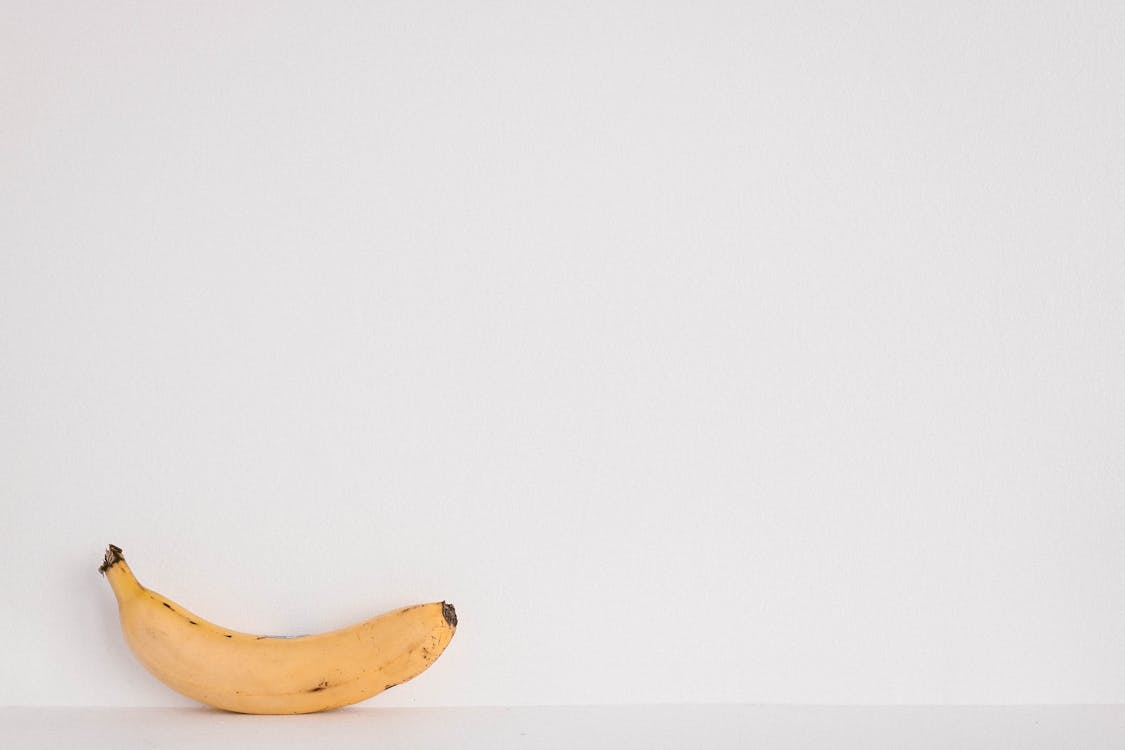10 Foods Your Bladder Will Fall in Love With
1. Water is a good option for good bladder health:
Staying hydrated is crucial for maintaining good bladder health. Adequate water intake is essential as it assists in flushing out toxins and bacteria that may cause bladder infections. Hydration also plays a vital role in preventing constipation, a condition that can exert pressure on the bladder and lead to discomfort. Ensuring proper hydration levels supports the overall function of the urinary system, promoting regular urination and reducing the risk of urinary tract infections.
Incorporating hydrating beverages like herbal teas and electrolyte-rich drinks can further enhance bladder health by replenishing fluids and maintaining electrolyte balance. Moreover, maintaining a consistent hydration routine throughout the day can help optimize bladder function and minimize the risk of urinary issues. Additionally, consuming water-rich foods such as fruits and vegetables can contribute to hydration levels and support overall bladder health. Overall, prioritizing hydration is essential for preserving bladder function and preventing urinary discomfort or infections.
Read Also:
Focus While Studying: 10 Proven Methods
2. Bananas are good for maintaining bladder health :
Bananas are indeed a bladder-friendly fruit due to their low acidity, making them a gentle choice for those with sensitive bladder conditions. Their mild nature makes them unlikely to irritate the bladder lining, thus reducing the risk of discomfort or exacerbating bladder issues. Additionally, bananas are rich in potassium, a vital mineral known for its role in maintaining electrolyte balance and preventing muscle cramps and spasms. This potassium content is particularly beneficial for bladder health as it helps regulate muscle function, including those in the bladder.
Incorporating bananas into the diet can contribute to overall bladder wellness by providing essential nutrients while minimizing potential irritants. Furthermore, bananas are a versatile fruit that can be enjoyed on their own, added to smoothies, or used as a natural sweetener in various dishes. Their convenience and nutritional benefits make them a practical choice for supporting bladder health and overall well-being. Overall, bananas stand out as a bladder-friendly food option, offering both gentle acidity and valuable potassium content to promote optimal bladder function and comfort.

3. Oats are a good choice for bladder health:
Oats are indeed a valuable source of soluble fiber, renowned for their ability to support digestive health by regulating bowel movements and promoting regularity. The soluble fiber found in oats forms a gel-like substance in the digestive tract, which aids in softening stools and facilitating their passage through the intestines. By reducing the likelihood of constipation, oats help alleviate pressure on the bladder, thereby minimizing the risk of urinary tract infections (UTIs). This preventive effect is significant, as UTIs often arise from bacterial buildup due to stagnant urine caused by constipation.
By incorporating oats into the diet, individuals can promote smoother bowel movements and reduce the strain on the bladder, contributing to overall urinary tract health. Moreover, oats offer additional nutritional benefits beyond their fiber content, including essential vitamins, minerals, and antioxidants that support overall well-being. Their versatility makes them an ideal breakfast option, whether enjoyed as oatmeal, granola, or added to smoothies and baked goods. Overall, the inclusion of oats in the diet serves as a proactive measure in maintaining optimal bladder and urinary tract health, highlighting their importance as a dietary staple for overall wellness.
4. Pumpkin seeds are one of the bladder friendly foods:
Pumpkin seeds are indeed a powerhouse of nutrients and antioxidants, boasting a wide array of health benefits that extend to bladder health. Their rich nutrient profile includes essential vitamins, minerals, and antioxidants that play a crucial role in supporting overall bladder function and urinary tract health. Additionally, the presence of magnesium in pumpkin seeds is particularly noteworthy, as this mineral is known for its ability to relax muscles, including those of the bladder. By promoting muscle relaxation, magnesium can help reduce the urgency of frequent urination, providing relief for individuals experiencing bladder-related issues.
Incorporating pumpkin seeds into the diet is a convenient and delicious way to harness their health-promoting properties. These versatile seeds can be enjoyed on their own as a snack, added to salads, soups, or baked goods, or used as a topping for yogurt or oatmeal. Furthermore, the antioxidants found in pumpkin seeds help combat oxidative stress and inflammation, contributing to overall urinary tract health. Their anti-inflammatory properties may help reduce the risk of urinary tract infections and support bladder function. Overall, pumpkin seeds stand out as a valuable addition to a bladder-friendly diet, offering a wealth of nutrients and health benefits that promote optimal urinary tract function and overall well-being.
5. Salmon is beneficial for your bladder:
Salmon, a fatty fish, is renowned for its abundant reserves of omega-3 fatty acids, known for their potent anti-inflammatory properties. Inflammation within the bladder can significantly exacerbate symptoms of urinary urgency and frequency, making it imperative to address this concern through dietary interventions. Incorporating salmon into one’s diet serves as a proactive approach to mitigating bladder inflammation and fostering optimal bladder health. The omega-3 fatty acids present in salmon help combat inflammation at the cellular level, thereby reducing the severity of symptoms associated with bladder issues. Furthermore, the inclusion of salmon in the diet offers a holistic approach to managing urinary concerns, addressing the underlying inflammatory processes while providing essential nutrients for overall well-being.
Salmon’s versatility in culinary applications allows for creative and enjoyable ways to incorporate it into meals, ensuring sustained adherence to a bladder-friendly diet. Whether grilled, baked, or broiled, salmon remains a delicious and nutritious addition to any meal plan aimed at promoting bladder health. Additionally, the omega-3 fatty acids found in salmon offer numerous other health benefits beyond bladder health, including cardiovascular support and cognitive function enhancement. Overall, prioritizing the inclusion of salmon in one’s diet serves as a strategic step towards reducing inflammation and supporting optimal bladder function, contributing to improved urinary tract health and overall well-being.
Read Also:
11 Best Ways to Improve Your Digestion
6. Cherries have a gentle effect on bladder:
Cherries, with their mild acidity, are considered a bladder-friendly fruit due to their gentle nature, which can help alleviate discomfort associated with bladder sensitivity. Moreover, cherries are packed with antioxidants, compounds known for their anti-inflammatory properties, which can play a crucial role in reducing inflammation within the bladder and preventing urinary tract infections. The abundance of antioxidants found in cherries serves as a natural defense mechanism against oxidative stress, bolstering the body’s ability to fend off harmful pathogens and maintain bladder health.
Incorporating cherries into the diet provides a delicious and nutritious way to support urinary tract wellness while indulging in a sweet and satisfying snack. Furthermore, cherries offer a variety of health benefits beyond bladder health, including improved heart health, enhanced cognitive function, and reduced risk of chronic diseases. Whether enjoyed fresh, dried, or as part of a flavorful recipe, cherries stand out as a versatile and wholesome addition to a bladder-friendly diet. Overall, cherries serve as a valuable ally in promoting bladder health, offering a combination of gentle acidity and potent antioxidants to support optimal urinary tract function and overall well-being.
7. Brown Rice are good for bladder:
Brown rice stands out as a nutritional powerhouse, boasting an impressive array of health-promoting properties that extend beyond its status as a whole grain. Its rich fiber content supports digestive health, aids in weight management, and promotes feelings of fullness and satiety. Additionally, brown rice is packed with essential vitamins and minerals, including B vitamins, magnesium, and manganese, which play key roles in various bodily functions and contribute to overall well-being. Moreover, its low acidity makes it a bladder-friendly option, offering relief to those with sensitive bladder conditions or urinary tract issues.
By choosing brown rice over white rice, individuals can enjoy a nutrient-dense alternative that not only supports bladder health but also provides sustained energy and nutritional benefits. Whether enjoyed as a side dish, incorporated into stir-fries or salads, or used as a base for grain bowls, brown rice offers versatility and wholesome goodness for a balanced diet. Overall, integrating brown rice into one’s meal plan serves as a practical and nutritious choice for promoting bladder health and overall wellness.

8. Honey helps in keeping the bladder healthy:
Honey, prized for its natural sweetness, serves as a bladder-friendly alternative to refined sugar, offering a delicious way to satisfy cravings without causing irritation or discomfort. Its gentle nature makes it well-tolerated by the bladder, making it a preferred choice for individuals with sensitive bladder conditions. Furthermore, honey boasts a rich array of nutrients and antioxidants, including vitamins, minerals, and enzymes, which contribute to its health-promoting properties. Incorporating honey into one’s diet not only enhances flavor but also provides additional nutritional benefits that support overall well-being.
By opting for honey as a sweetener, individuals can reduce their intake of refined sugar, which has been linked to inflammation and bladder irritation in some people. Whether drizzled over yogurt, added to tea or baked goods, or used as a glaze for meats and vegetables, honey offers versatility and wholesome sweetness for a bladder-friendly diet. Overall, embracing honey as a natural sweetener aligns with a holistic approach to bladder health, providing a delicious and nutritious option that promotes well-being and satisfaction.
9. Cucumbers support bladder health:
Cucumbers are a refreshing and hydrating vegetable choice, thanks to their high water content, which makes them an excellent option for maintaining optimal hydration levels and supporting bladder health. Their mild flavor and low acidity render them gentle on the bladder, making them suitable for individuals with sensitive bladder conditions or urinary tract issues. In addition to their hydrating properties, cucumbers are rich in nutrients, including vitamins, minerals, and antioxidants, which contribute to their health-promoting benefits.
Incorporating cucumbers into snacks or meals provides a satisfying crunch and adds a burst of hydration and nutrition. Whether enjoyed sliced as a standalone snack, added to salads, sandwiches, or dips, cucumbers offer versatility and freshness to any dish. Moreover, their low-calorie content makes them a guilt-free option for those watching their calorie intake while prioritizing bladder health. Overall, cucumbers stand out as a hydrating and bladder-friendly food choice that supports overall well-being and adds a refreshing twist to any meal or snack.
10. White Bread is good for bladder health:
While whole grains are often recommended for promoting bladder health due to their high fiber content and nutritional benefits, it’s important to recognize that individual responses to different types of bread may vary. For some individuals with bladder sensitivity, white bread may be easier to tolerate, possibly due to its lower fiber content and less abrasive nature. However, it’s crucial to approach this with a degree of experimentation and caution, as preferences and tolerances can differ greatly from person to person.
By trying out various types of bread and observing how your body responds, you can determine which option works best for you and supports your bladder health goals. Additionally, it’s essential to consider other factors that may impact bladder health, such as overall dietary habits, hydration levels, and lifestyle factors. Ultimately, the key is to listen to your body and make informed choices that align with your individual needs and preferences. Consulting with a healthcare professional or registered dietitian can also provide valuable guidance and support in managing bladder sensitivity and optimizing dietary choices for bladder health.




